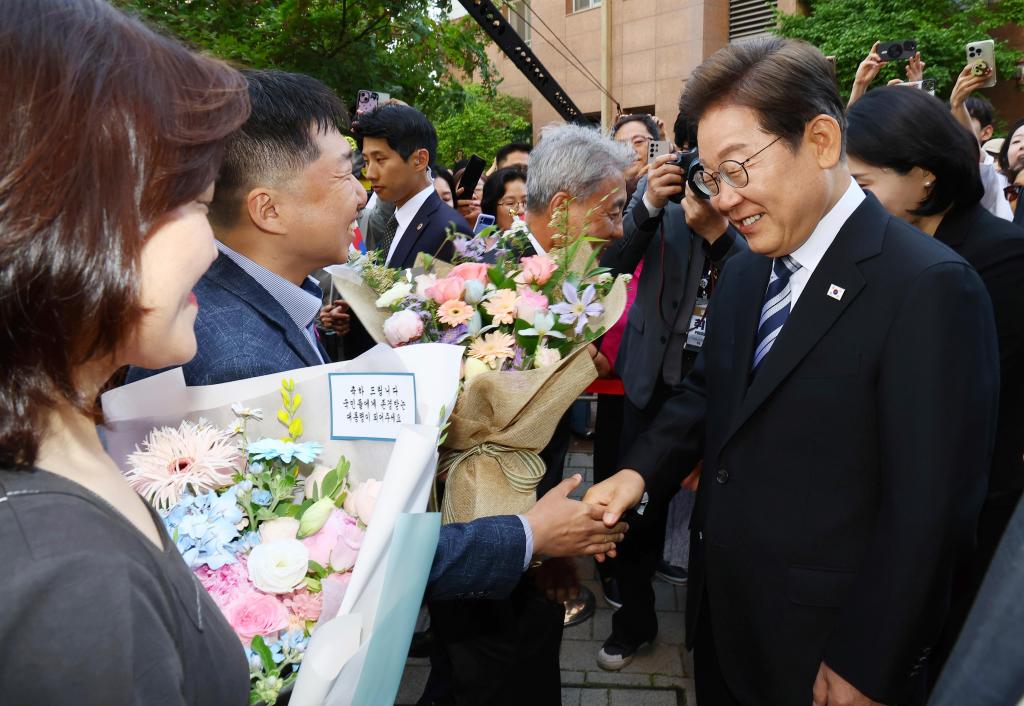Overshadowed by the wars and associated crises that dominate the news, democratic South Korea has defeated a power grab that would have returned authoritarian rule. Americans in particular have good reason to take considerable pride in this victory.
Last month, Lee Jae-myung of the liberal Democratic Party (DPK) was elected president with 49.4% of the vote. This followed a major domestic political crisis resulting from an extraordinary effort by then-President Yoon Suk Yeol of the People Power Party to impose martial law.
On Dec. 3, Yoon declared in a televised speech to the nation that he was establishing a state of martial law. Specifically, he accused the DPK, which holds a majority in the National Assembly, of significantly frustrating his legislative program, contrary to the public interest.
Yoon became well-known as a prosecutor. That may help explain his drastic authoritarian move. South Korea has enjoyed an effective, though extremely turbulent, democracy since 1987.
Yoon ordered troops to surround and occupy the National Assembly. They did so, causing understandable concern.
However, South Korea’s legislators nonetheless were able to enter the building and conduct business. Public protestors of the president’s attempted action aided their efforts. Clearly, the military was anxious to avoid an armed clash.
In consequence, citizens and the military combined to confirm democracy.
Yoon was impeached and removed from office.
This would be significant in any case, but especially in this case given South Korea’s history of harsh military dictatorship and the relatively recent introduction of democracy.
Following liberation from Japan in 1945, the nation was divided into North and South Korea, each zone supervised respectively by the Soviet Union and the United States. As in the case of Germany and Austria, this was regarded as a temporary expedient in the immediate aftermath of World War II, but the emergence of the Cold War changed the situation.
Soviet leader Joseph Stalin had agreed to declare and wage war on Japan three months after the surrender of Nazi Germany. In this case, he proved true to the letter of his word.
Syngman Rhee, a leader of Korean independence with close U.S. ties, was elected president of the Republic of Korea in July 1948. Voter turnout was enormous. North Korea declined to participate.
The Korean War of 1950-53 confirmed the division between North and South, and extended the Cold War from Europe to Asia.
Rhee proved to be a difficult ally, and increasingly autocratic. In 1960, student demonstrations forced him out of office. The next year, Gen. Park Chung-hee established a harsh military dictatorship.
Park was assassinated in 1979 by the head of the KCIA, the national intelligence agency. In Korean memory, he remains a respected symbol of strength and effectiveness for many, though with the passage of time, and political modernization, that popularity may begin to fade.
He was succeeded as chief executive by two more generals, Chun Doo Hwan and Roe Tae Woo, but growing pressure for true democratic representation proved insurmountable.
The capstone of the strong transition to democracy was the election of Kim Dae-Jung as president in 1998. He completed his five-year term without interruption, and in 2000 received the Nobel Peace Prize.
Kim greatly strengthened representative government.
South Korea is a proven U.S. friend, including providing significant combat forces during the Vietnam War.
That remains important. China is launching a charm offensive targeting Asia nations, helped by President Donald Trump, who announced new tariffs on South Korea and other countries.
Arthur I. Cyr is author of “After the Cold War – American Foreign Policy, Europe and Asia.”
Contact acyr@carthage.edu
Originally Published: July 8, 2025 at 2:28 PM CDT
